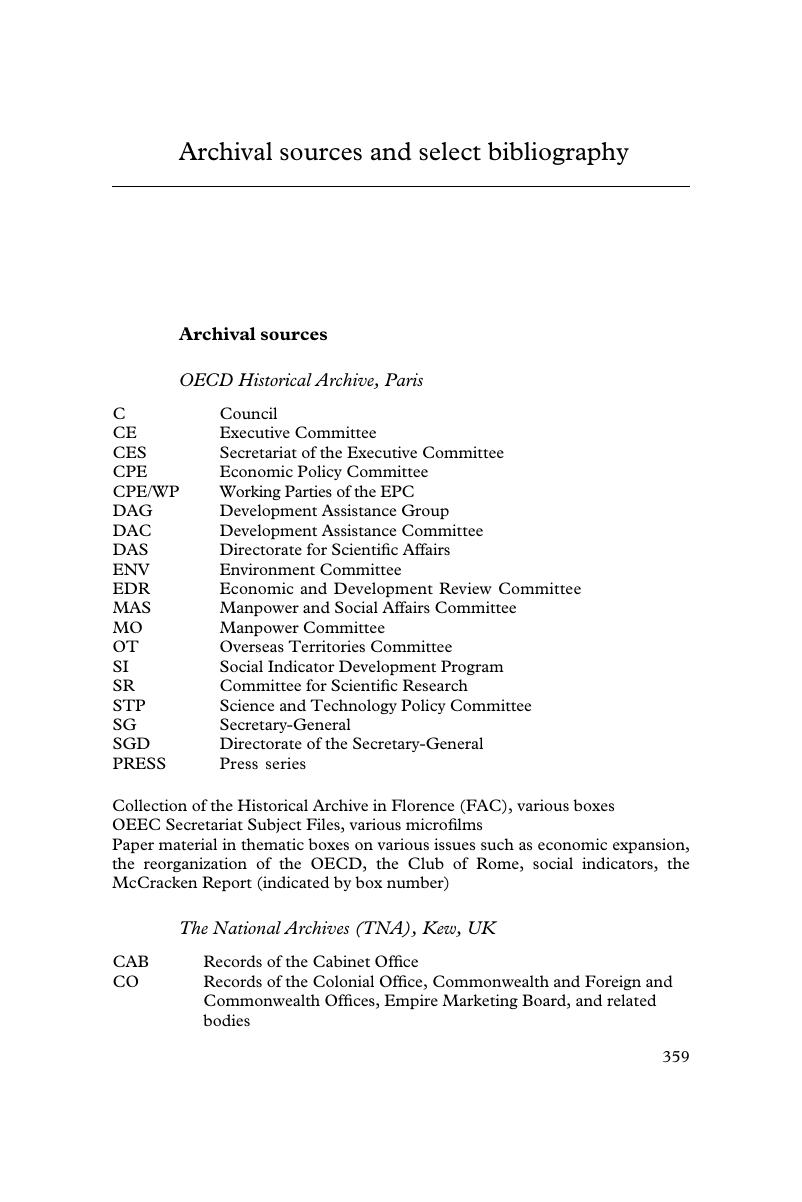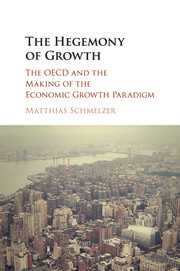Book contents
- The Hegemony of Growth
- The Hegemony of Growth
- Copyright page
- Contents
- Figures and Tables
- Book part
- Glossary
- Introduction
- Setting the stage
- Part I Paradigm in the making
- Part II Paradigm at work
- Part III Paradigm in discussion
- Epilogue
- Conclusion
- Archival sources and select bibliography
- Index
- References
Archival sources and select bibliography
Published online by Cambridge University Press: 05 May 2016
- The Hegemony of Growth
- The Hegemony of Growth
- Copyright page
- Contents
- Figures and Tables
- Book part
- Glossary
- Introduction
- Setting the stage
- Part I Paradigm in the making
- Part II Paradigm at work
- Part III Paradigm in discussion
- Epilogue
- Conclusion
- Archival sources and select bibliography
- Index
- References
Summary

- Type
- Chapter
- Information
- The Hegemony of GrowthThe OECD and the Making of the Economic Growth Paradigm, pp. 359 - 374Publisher: Cambridge University PressPrint publication year: 2016



